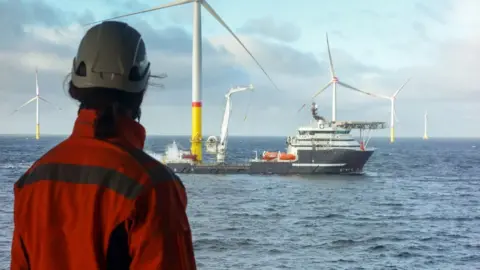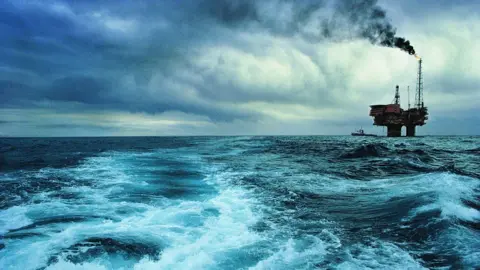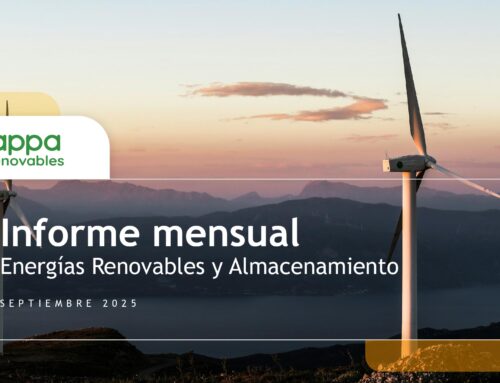Renewables jobs not making up for North Sea decline, MPs warn
October 24, 2025
Renewables jobs not making up for North Sea decline, MPs warn
 Getty Images
Getty ImagesRenewable energy jobs are not being created quickly enough to match a decline in the North Sea oil and gas industry, MPs have warned.
A report from the Scottish Affairs Committee says Scotland’s energy sector is at a “critical juncture”, and that more action is needed at both Holyrood and Westminster to protect communities from the impact of the transition away from fossil fuels.
The committee also concluded that both the UK and Scottish governments should have been better prepared for the closure of the Grangemouth oil refinery, which shut earlier this year with the loss of more than 400 jobs.
The UK government said it was committed to a “fair and orderly transition” to net zero.
Deputy First Minister Kate Forbes said the Scottish government had provided £120m to support the transition to net zero in the north east.
The UK government has pledged to reduce its greenhouse gas emissions to net zero by 2050.
The Scottish government has a more ambitious target, set by former first minister Nicola Sturgeon, of reaching that goal by 2045.
SNP ministers abandoned annual and interim targets last year after they repeatedly missed them.
The Scottish Affairs Committee said fossil fuels would continue to form part of the UK’s energy mix for decades.
MPs reported that there were “compelling arguments” for a move away from oil and gas production to be slowed “to meet as much energy demand as possible from domestic sources”.
The committee added: “Doing so will mean Scotland retains highly skilled supply chain workers, rather than being lost to overseas markets, which are vital for the growth of clean energy sectors.”
Windfall tax reform
MPs warned that the current tax regime for the oil and gas sector, which sees profits taxed at a rate of 78%, would “accelerate the decline of the North Sea oil and gas industry and its supply chain”.
The report backed industry calls for the windfall tax to be reformed “as soon as possible”.
And it called for a “pragmatic approach” to licensing of new oil and gas drilling in the North Sea – which the UK government has banned.
MPs also found that a failure of Scottish and UK governments to act sooner to prepare for the closure of the Grangemouth refinery contributed to an “avoidable” employment gap and added to the “trauma” for the surrounding area.
The Scottish government has committed £25m to a “just transition” fund for Grangemouth, while the UK government has pledged £200m for the area.
North Sea oil and gas production peaked in 1999 but it has fallen dramatically since then, with the UK now producing more electricity via renewable sources than it does through fossil fuels.
The licensing of offshore oil and gas fields, whether for exploration or extraction, is reserved to the UK government.
Labour ministers have committed to banning new exploration licences, though this would not rule out developing existing fields.
The Scottish government says it is committed to transitioning away from fossil fuels to greener sources of energy, though First Minister John Swinney has said North Sea oil and gas will be needed “for a period of time”.
 Getty Images
Getty ImagesPatricia Ferguson MP, chairwoman of the Scottish Affairs Committee, said: “The UK government has been quite clear that we will need oil and gas for decades to come, so accepting that, we think that they need to tell us what that plan is and tell us what the plan is for the transition for the workers and for the industry itself.”
She warned that energy workers were being attracted to jobs overseas and that “vital skills” could be lost from Scotland.
“So governments – whatever’s happened in the past – have to act now to make sure that workers are able to re-skill and they are able to move into jobs in the new sectors that are coming through. And that needs to be done at pace,” Ferguson added.
A spokesman for the UK department of energy security and net zero said: “We are not willing to accept the status quo we inherited of the North Sea being in decline.
“This is why we have taken rapid steps to deliver the next generation of good jobs for North Sea workers in a fair and orderly transition, including by making the biggest investment in offshore wind and carbon capture.”
They claimed the plans could help deliver more than 40,000 new jobs in Scotland by 2030.
GMB Scotland secretary Louise Gilmour said the report made for “grim reading” as she urged both the UK and Scottish government to publish clear strategies for managing the transition to net zero.
She said: “Ministers can no longer stick their fingers in their ears and shout more loudly about all the great things coming tomorrow while ignoring catastrophic job losses today.”
Kate Forbes said she shared the committee’s concerns about the energy profits levy and called on the UK government to “listen carefully” to concerns from businesses.
She added: “Scotland’s transition to net zero presents enormous opportunities for our economy and our energy workforces.
“Renewables already supports tens of thousands of jobs and the Scottish government is clear workers will remain at the heart of a just transition as we unlock further benefits over the coming years.”
Search
RECENT PRESS RELEASES
Related Post


